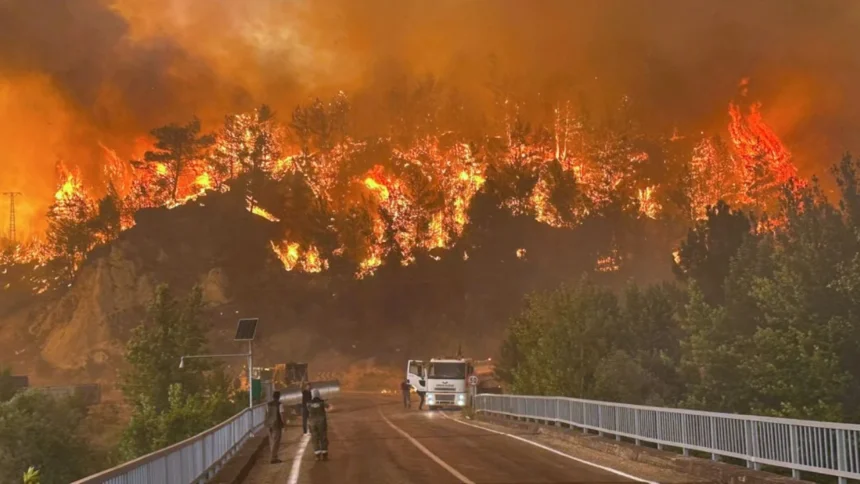Severe wildfires, fueled by a heatwave, have claimed three lives in Spain over the past days, destroyed thousands of hectares of land, and forced the evacuation of thousands of residents. Spain’s Environment Minister Sara Aagesen described the situation as a “clear warning” of the impact of the climate emergency.
Speaking Wednesday morning, as firefighters in Spain, Greece, and other Mediterranean countries battled dozens of blazes, Aagesen said 14 wildfires remain active in seven Spanish regions. While some may have been deliberately ignited, she stressed that these deadly fires highlight the urgency for better prevention and preparedness.
Spain’s government announced it has formally requested EU assistance, specifically two water-bombing aircraft, Interior Minister Fernando Grande-Marlaska confirmed.
In Portugal, more than 2,100 firefighters and 20 aircraft are tackling five major blazes, with the most critical one in Trancoso. Strong overnight winds reignited flames, threatening nearby villages.
In Greece, which also requested EU aerial support earlier this week, about 5,000 firefighters are engaged in what authorities called a “titanic battle” against fires across the country. Major hotspots include western Peloponnese, Epirus, and the islands of Zakynthos, Kefalonia, and Chios, where thousands of locals and tourists have been evacuated. At least 17 firefighters and volunteers have suffered burns, heatstroke symptoms, and other injuries.
Turkey has been battling severe wildfires since late June. The death toll has risen to 18, including 10 volunteer rescuers and forestry workers killed in July.







